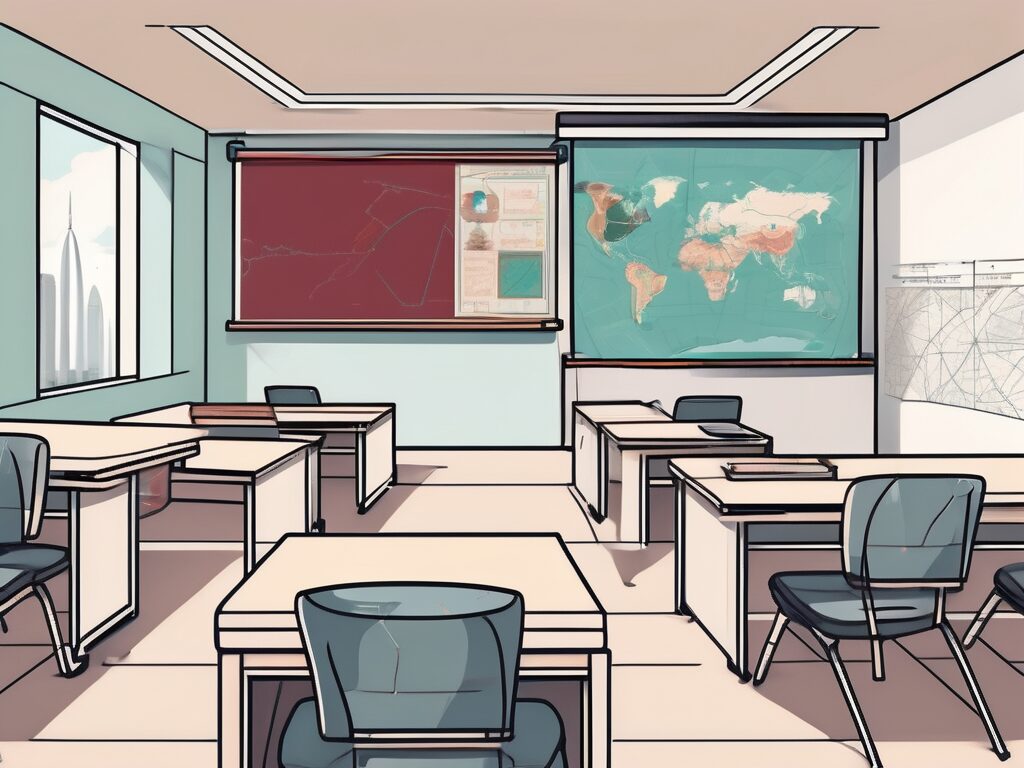The world of education is a dynamic and ever-evolving landscape. With the advent of new technologies and methodologies, the way we impart knowledge is constantly changing. One such development is the implementation of an Integrated Qualification and Training System (IQTS) in the educational sector. This system, while promising, brings with it a unique set of challenges, particularly in diverse educational landscapes such as Hong Kong and Qatar. In this exploration, we’ll delve into four key comparisons of the teaching challenges faced in these two regions.
1. Cultural Differences
Understanding Cultural Nuances in Hong Kong
One of the main challenges in implementing an IQTS in Hong Kong is the cultural diversity. With its rich history and blend of Eastern and Western influences, the city’s educational system reflects this diversity. Teachers must navigate these cultural nuances to effectively implement an IQTS. This requires a deep understanding of the local culture, customs, and traditions, as well as the ability to adapt teaching methods to suit these unique contexts.
Adapting to the Qatari Culture
Similarly, Qatar presents its own set of cultural challenges. As a country deeply rooted in Islamic traditions, the educational system in Qatar is heavily influenced by these beliefs. This means that an IQTS must be adapted to fit within these cultural parameters. Teachers must be sensitive to these cultural aspects, ensuring that the system respects and upholds these traditions.
2. Technological Infrastructure
Technological Advancements in Hong Kong
Hong Kong boasts a robust technological infrastructure, which is a boon for the implementation of an IQTS. However, this also presents a challenge as teachers must be well-versed in these technologies to effectively use them in their teaching. This requires continuous training and upskilling, which can be a daunting task for some.
Technology in Qatar’s Education System
On the other hand, Qatar is still developing its technological infrastructure. While there have been significant strides in this area, there is still a gap that needs to be addressed. Teachers in Qatar may face challenges in accessing and using the necessary technologies for an IQTS, which can hinder its effective implementation.
3. Language Barriers
Language Diversity in Hong Kong
Hong Kong’s linguistic landscape is as diverse as its culture. With Cantonese as the primary language and English as the second language, teachers must be proficient in both to effectively communicate and implement an IQTS. This language barrier can pose a significant challenge, particularly for non-native teachers.
Language Challenges in Qatar
Qatar, on the other hand, primarily uses Arabic in its educational system. While English is also taught, the dominance of Arabic can pose a challenge for non-Arabic speaking teachers. This language barrier can affect the effective communication and implementation of an IQTS.
4. Educational Policies and Regulations
Educational Policies in Hong Kong
Hong Kong’s educational policies are well-established and comprehensive, providing a solid framework for the implementation of an IQTS. However, these policies can also be restrictive, limiting the flexibility and adaptability of the system. Teachers must navigate these policies and regulations, ensuring that the IQTS aligns with them.
Regulations in Qatar’s Education System
Qatar’s educational regulations, while comprehensive, are heavily influenced by Islamic traditions. This can pose a challenge for the implementation of an IQTS, particularly if it conflicts with these traditions. Teachers must be aware of these regulations and ensure that the system respects and upholds them.
In conclusion, while the implementation of an IQTS presents numerous benefits, it also brings with it a unique set of challenges. These challenges, while significant, can be navigated with understanding, sensitivity, and adaptability. As we continue to evolve our educational systems, it is crucial that we consider these challenges and work towards solutions that benefit both teachers and students alike.
Advance Your Teaching Career with The IQTS at UWE
Understanding the complexities and challenges of implementing an IQTS in diverse educational settings is just the beginning. If you’re an educator looking to overcome barriers such as stringent qualification requirements, limited career progression, professional isolation, or a need for a deeper grasp of global education systems, The IQTS at UWE is here to support your journey. Our International Qualified Teacher Status (iQTS) Programme is specifically designed to enhance your professional development, offering a Level 7 qualification that has proven to increase interview callbacks, promotion rates, and salary potential. Join a thriving community of educators who are making significant strides in their careers while balancing work and study. Make Your Next Step towards a fulfilling international teaching career with the iQTS programme.

